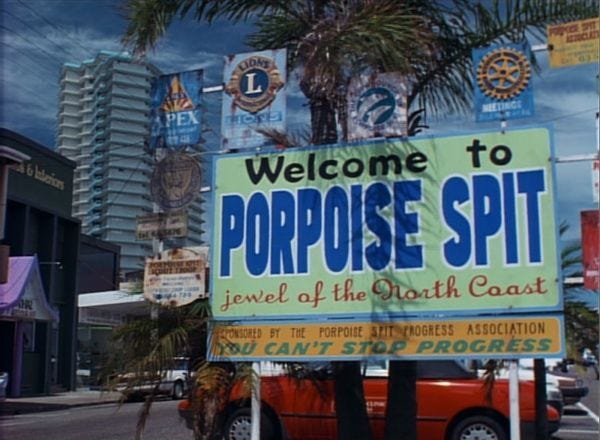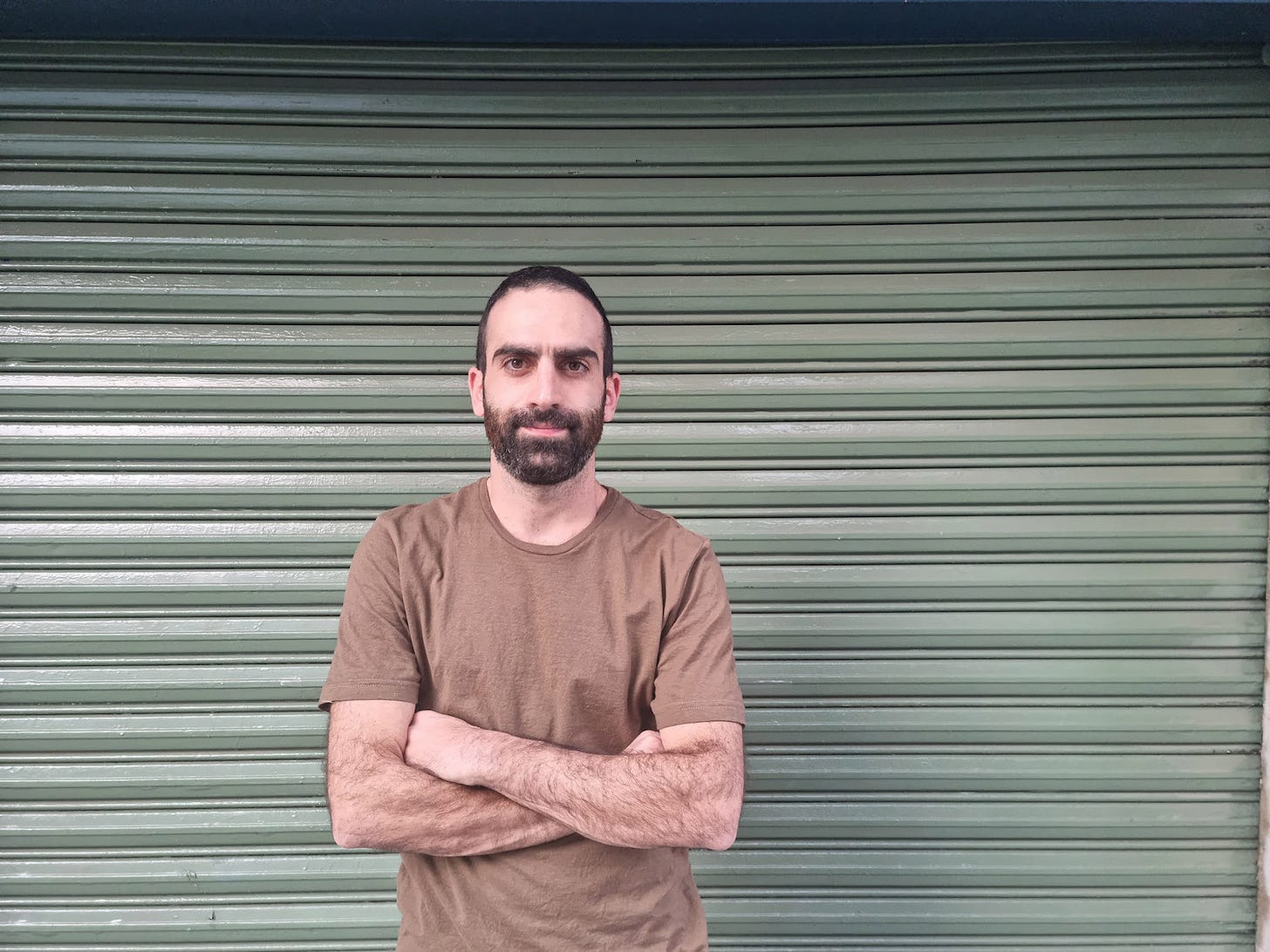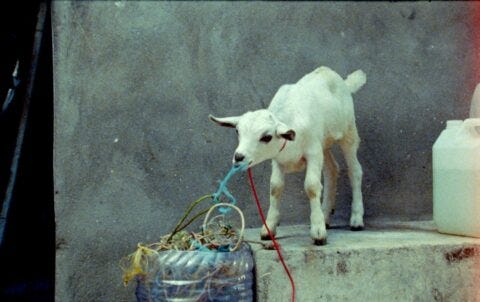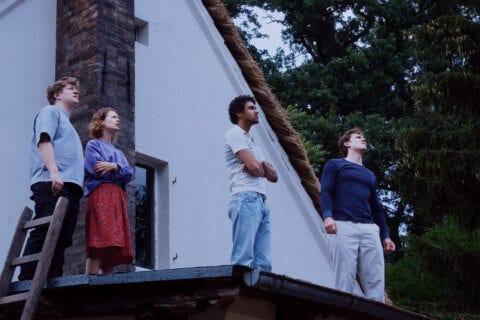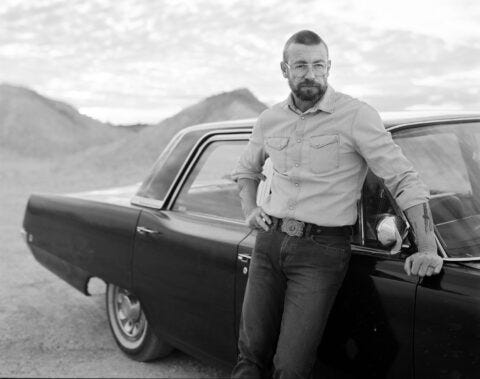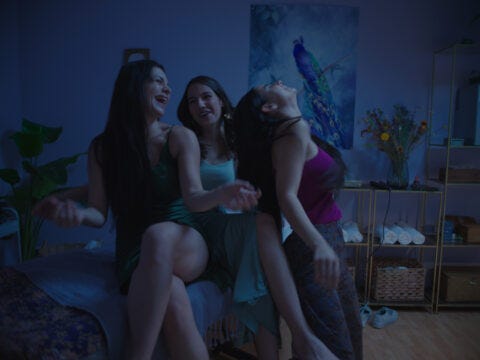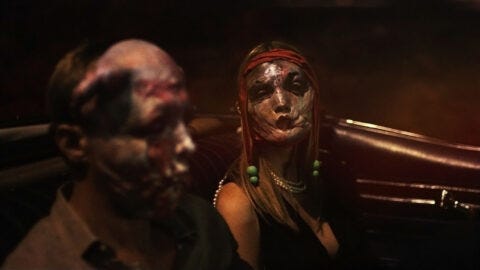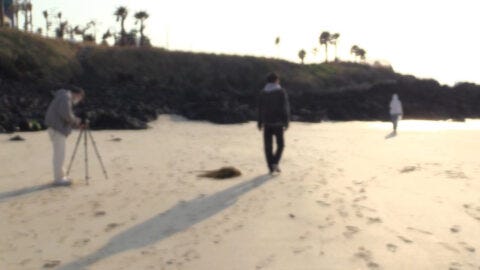The headline is a quote from Muriel’s Wedding (P.J. Hogan, 1994) — picked by Karoline Herfurth as part of the Berlinale Retrospective programme. It’s the best film from the festival I saw, a lovely mixture of tragedy and comedy held together by easily quotable lines and a brilliant Toni Collette performance.
Her father (Bill Hunter) is the bigshot in town; a local politican whose progress line illuminates the themes of the movie excellently. It also sums up Berlin, a city constantly in a state of becoming. Progressing, as it were.
From the building works at Potsdamer Platz, to the upcoming gleaming station at Zoologischer Garten (to be finished in 2027) to the garish monstrosity at Warschauer Brucke, progress is all around the city of Berlin. New and old mix together in a kind of bizarre mixture of timelessness (think small, cosy kneipen) and the rise of yuppie, internationalist spaces, like the card-only Manifesto Market at Potsdamer Platz.
Even the free coffee in the press centre is progressing. Sponsored by Oatly, normal milk is out of the question. In the spirit of the times, I tried a yuppie flat white. I moved immediately to espressos. Not all progressions are good. Sometimes its best to look to simpler times — like 1990s Australia — where all you needed was a few good ABBA songs.
Thankfully the city is not the only thing progressing. After a terrible year last year, characterised by mid French language cinema, the Berlinale is back with a bang; fresh, new exciting works that make one hopeful about the most important thing of all: auteur cinema. It’s safe to say, it’s been a good one.
Pummeled by a constant stream of visions, I don’t have a coherent thesis statement here. So let’s just round up the rest of what Journey Into Cinema has covered:
Heroico Interview
“I think most of the violence in the film happens off-screen in a way. I would only portray violence visually if we need to see it for any reason, which most of the time is not the case. Because the important thing for me is not the violence per se, but what it provokes in the character. Seeing it wouldn’t make a difference.”
Tracing the Echoes of the Berlinale Encounters Section
Written by Daniel Turner.
“Conceived as a counterpoint and complement to the Competition section, Encounters, founded in 2020, has already become a home for some of the festival’s most striking work. This year is certainly no exception, with many films in the selection drawing plaudits, from Bas Devos’ Here (2023) to Dustin Guy Defa’s The Adults (2023).
As I made my own journey through this year’s eclectic Encounters selection, I found myself drawn to the work of three distinct filmmakers and the slightly nebulous golden thread that seemed to join them – echoes.”
Christian Petzold Changes Pace with the Breezy Relationship Drama Afire
Written by Audrey Fox.
“Leon is going on vacation. He won’t rest until he makes everyone else miserable.
In Afire (2023), the latest effort from German director Christian Petzold, Thomas Schubert stars as the Eeyore-like writer, who has accompanied his friend Felix (Langston Uibel) to his family’s seaside cottage with the enthusiasm of a 14-year-old boy on a summer holiday. He’s mad that they’re forced to share the cottage with Nadja (Paula Beer), an acquaintance of Felix’s mother’s. He’s irritated that her loud sex with a hot lifeguard (sorry, rescue swimmer) disturbs his slumber.
Poor Felix, basically the human incarnation of a golden retriever, tries to encourage Leon to have a little bit of fun, but is shut down at every turn. Leon can’t go swimming in the ocean – he’s busy working. The end result is a character who is, frankly, insufferable, but utterly fascinating to watch in the hands of Schubert, who captures every flash of annoyance in his eyes.”
Limbo (Not that One or that One) Gives the Ossie Outback the Breaking Bad Treatment
“Limbo is the new film by Ivan Sen. It’s not to be confused with Limbo (Ben Sharrock, 2020), Limbo (Soi Cheang, 2021), Limbo (John Sayles, 1999) and Limbo (Tina Krause, 1999). But it feels fresher than its unoriginal title suggests, using the desert noir genre to explore the history of racial oppression in the Australian outback.
Simon Baker, seriously underacting, stars as a detective tasked with cracking a cold case in the Australian outback. He’s staying in the appropriately titled Limbo Motel, a cave-like dwelling with no other inhabitants. Seeking redemption for a failed relationship in the past, he listens to a preacher on the radio, talking about how with God, the negative can be turned into positive. Limbo diligently explores this thesis.”
Bad Living and Living Bad at Berlinale 2023: Four Enigmatic Hours of Maternal Misery
“Bad Living and Living Bad (João Canijo, 2023). Or in Portuguese: Mal Viver and Viver Mal. Either way, the two names are so similar that I will never stop checking which film is which. It has to be intentional, for they bleed into each other constantly, like watching yourself in a smashed mirror.
Or perhaps Through A Glass Darkly (Ingmar Bergman, 1961). The spirit of Bergman, and his dramaturgical hero, August Strindberg, lingers over the entire two-part chamber project, both in the austere compositions and the theme of neurotic, controlling mothers. It’s all the more unsettling thanks to its ambitious scope, using an innovative two-film structure to create striking parallels and deepen anxieties.”
Berlinale 2023 Perspektive Deutsches Kino: German Soft Power
“It’s worth acknowledging that all the major international film festivals, whether wittingly or not, are vehicles for state soft power. They show off the best films from a particular country, the best co-productions they are involved in and also the values that make their country such a wonderful place. For one thing, without state funding, a lot of these festivals — running usually as private-public partnerships — would find it harder to even exist.
And festivals are disappearing in war-mongering and war-abetting states such as Russia and Belarus. In an authoritarian state like Saudi Arabia with a spotty human rights record, the Red Sea festival inspires moral questions about whether merely attending is participating in white-washing. And in a contentious state like Isreal, their film festivals are boycotted by a broad swathe of filmmakers objecting to the occupation of Palestine.”
Infinity Pool Gives you Everything but the Excrement
Written by Billie Walker.
“We are only three features into Brandon Cronenberg’s directorial career and he has already revealed himself to be a benefactor of cinema’s most visceral genre: body horror. Much like Cronenberg Sr, he has a knack for making bizarrely graphic scenes appear an inextricable necessity to his films. After the success of paranoid sci-fi thriller Possessor (2020), it’s not surprising that Infinity Pool (2023), playing in the Berlinale Special, came pre-packaged in anticipation.
Cronenberg’s love for body horror may be an inherited directorial trait but his approach to gore is unique; preferring psychedelic flashing visuals over the raw imagery of his father. And while Infinity Pool is yet another in a recent trend of films with a running commentary on the abundance of the 1%, Infinity Pool’s commitment to literal grotesque displays of wealth distinguishes it from the pack.”
in water is Hong Sangsoo’s Best Film In Years
“As a film critic, it’s important to acknowledge one’s own biases. If you get them out of the way, people know where you stand. My (perhaps insane) bias is that there can not be such a thing as a bad Hong Sangsoo movie. Watching a new Hong film is like hanging out with an old friend. It’s always the same person you already enjoy spending time with; each new meeting deepening that strong bond you already have.
Old friends always have the capacity to surprise us. With in water (2023), Hong doesn’t exactly reinvent the wheel, but he does innovate with his characteristic style, delivering the best film I’ve seen from him since On the Beach At Night Alone (2017).”
And that’s that. See you next year:




